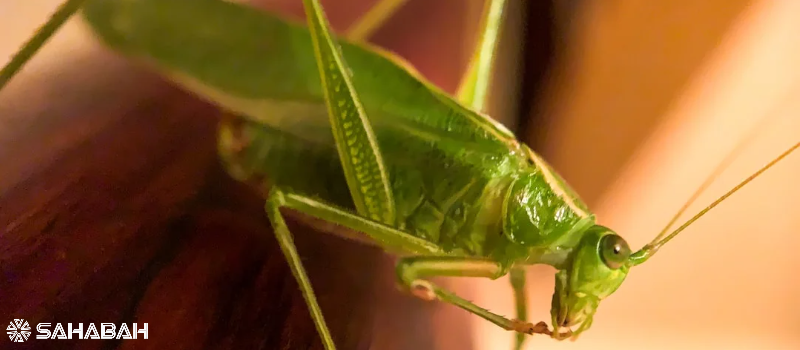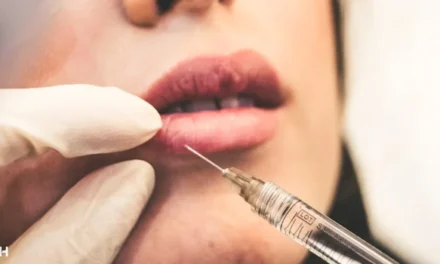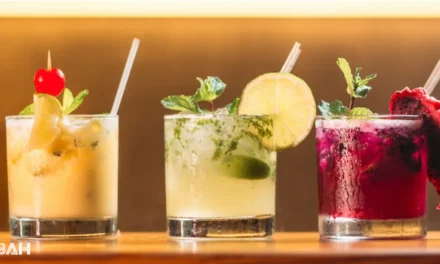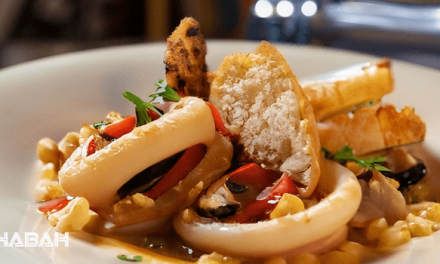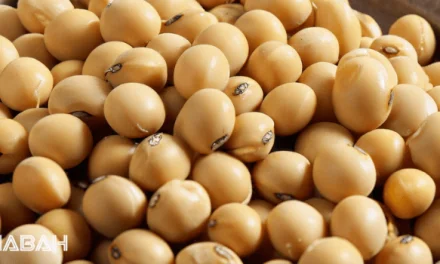The recent rise of edible insects and bug-based food products across Europe and North America has led many Muslims who adhere to a halal diet to ask: are bugs halal? This extensive article analyzes principles from the Qur’an, hadiths, and Islamic jurisprudence to examine the permissibility and halal certification requirements around consuming insects.
Defining Halal Food Standards in Islam
The Qur’an outlines general criteria for food that Muslims consider permissible to eat. Halal is often translated as ‘lawful’ or ‘permitted.’ For meat products including beef, chicken, or other livestock to be certified halal:
-
The animal must be among those classified for consumption – excluding categories like carrion, blood, pork, or those slaughtered with the invocation of any other entity besides Allah
-
The slaughter itself must align to Islamic ritual procedure involving recitation of tasmiyya while using a sharpened blade for quick kill
Additionally, various narrations of guidance from the Prophet Muhammad (PBUH) reaffirm intrinsic prohibitions, such as this hadith from Sahih Muslim:
“He has forbidden you…the flesh of swine, and the meat of that which has been slaughtered in other than Allah’s name.”
While these primary sources cover qualification and exclusion around common livestock species, there remains ambiguity around the ruling on insects when analyzed through the lens of traditional Islamic jurisprudence.
Documented Allowances for Certain Insects in the Hadiths
Neither the Qur’an nor the authoritative hadith collections contain clear universal allowances or prohibitions towards consuming most insects sold today as food, including:
- Crickets
- Mealworms
- Grasshoppers
- Cicadas
However, some narrations provide precedent and legal backing for the halal status of two specific varieties under qualified situations – locusts and honey bees:
This hadith documented in Sunan Abi Dawud quotes the response from the Prophet Muhammed (PBUH) himself during a locust swarm infestation and famine faced by the early Muslims:
“We have been allowed two kinds of dead meat and two kinds of blood,” listing locusts among the dead meat permitted even without ritual slaughter.
The Prophet Muhammed (pbuh) further sanctioned the flexibility that locusts are mubah, or broadly permitted, at times of necessity when other food sources may not be available.
Honey and bee larvae are also described as having healing properties in parts of the Sunan:
The Messenger of Allah (PBUH) said “Eat honey, for it cures every illness.”
Since the Sunnah serves as an enduring record of the Prophet Muhammed (pbuh) life modeled as an example for Muslims, these narrations regarding locusts and honey provide grounds for other insects to potentially be considered halal.
Principles for Determining an Insect Species’ Permissibility
To determine rulings on modern insect varieties entering global food chains and markets, Muslim legal bodies have established methodology through fiqh frameworks to resolve ambiguity when a given animal is not explicitly addressed in the core texts of Qur’an and Sunnah:
Insects Classified as Land Animals Under Islamic Law
- The Hanafi school outlines legal designations placing insects under the umbrella term of ‘land animals’ – just as camels and goats are categorized
- This means insects likely qualify for related qualifications around ritual cleansing, hunting restrictions etc. by analogy
Herbivorous/Omnivorous Diets and Natural Food Chain Habits
- Most farmed and harvested insects like crickets, mealworms and grasshoppers follow herbivorous or omnivorous diets consisting of vegetables, fruit, grains
- They fill an ecological niche to break down detritus and enable natural decomposition cycles without predatory feeding habits
Body Part and Anatomical Characteristics
Components determining an animal’s legal eligibility like blood volume and bone marrow development are likely not applicable as theological objections towards insects.
With this established methodology, contemporary Islamic opinions have arisen allowing certain insect types meeting these and other Spiritual legal criteria.
Permitted Insects Based on Principle of No Textual Prohibition
In light of no direct prohibition and following criteria allowing locusts and bees, the following varieties have qualified as permissible to eat under modern halal certifications:
Crickets
The predominant Hanafi school has permitted crickets based on classification among natural herbage and vegetation that was Divinely sanctioned. Multiple contemporary evaluations reaffirm crickets for human usage based on this analogy.
Mealworms
Though mealworms have not yet achieved definitive consensus across schools of thought, many recent Islamic legal opinions have allowed them under similar principles to locusts – as an insect meeting key criteria qualifying them for halal consideration barring further objection. These include herbivorous feeding habits and textual void of prohibition.
Cicadas
Multiple recent analyses have confirmed the halal eligibility of cicadas based on the legislative foundations allowing all locust varieties. Some hadith state locusts as “the cattle of the sea,” providing grounds for extension to related species like cicadas.
Requirements for Halal Certification of Edible Insects
Granting baseline religious permissibility does not yet fully qualify insects as certified halal ready for commercial markets and trade. Additional criteria must be met:
Verification of Suitable Feed and Controlled Farming Conditions
Insects must be raised on permissible vegetation and grains qualified as halal themselves, free of contamination. Facilities must adhere to ethical regulations against cramming, deprivation etc.
Processing and Preparation Following Halal Guidelines
Harvesting, slaughtering, cooking and processing techniques must avoid haram substances. Shared equipment must uphold sanitation protocols according to Sunnah.
Thorough Cleansing of Final Products
Insects must undergo purification remembering cleanliness codes from hadith recommendations following any animal slaughter and butchering.
Careful Review of All Additives, Ingredients and Formulas
Any enhancers, preservatives and ingredients used alongside the core insect component must pass independent inspection by certifying bodies.
Upon satisfactory review of these qualifications by Muslim auditing organizations like the Islamic Services of America, insects farming enterprises may achieve formal halal status licensing their products for global trade and consumption by the faithful.
Not All Insects Have Received Clearance by Islamic Authorities
As seen from past disagreement between the Prophet Muhammed (pbuh) companions like Abdullah ibn ‘Umar and Jabir bin ‘Abdullah over locusts documented in Sahih al-Bukhari, allowances for insects involve some flexibility across legal interpretation:
Abdullah ibn ‘Umar declined eating locusts based on traditions from viewing them as risky ‘vermin’.
In contrast, Jabir chose to eat the locusts approving them as ‘food from the sky’ addressed in the Sunan.
This historical variance over even locusts shows debate among Muslim scholars. While consensus has emerged allowing a few specific varieties like honeybees, many insects have yet to receive formal halal rulings by certification bodies and await further deliberation by Islamic authorities should commercial interest increase.
Additional Practical Factors Around Preparation and Processing
Beyond abstract principles around the insects themselves, several additional real-world considerations apply for halal qualification as human food products:
Verification of Sanitary and Controlled Raising and Feeding Standards
Insects must be reared on dedicated monitored farms following typical halal guidelines for animal agriculture around eliminating contact with prohibited substances, ethical treatment etc. Materials used constructing hives and habitat equipment must also be screened.
Humane Harvesting and Slaughtering Without Contamination
Methods for collecting mature insects as they reach target size for consumption must avoid unnecessary harm or suffering aligning with Islamic ethics. Food-safe gloves, containers and tools must prevent introduction of impurities.
Thorough Cooking and Processing Free of Haram Exposure
Storage and cooking methods must safeguard insects from mingling with prohibited food stuff through shared equipment or preparation areas without proper cleansing.
Careful Inspection of Any Additives like Preservatives During Manufacturing
Comprehensive ingredient listings with all formulas used alongside the core insect component must pass independent verificationinspections by Muslim auditors continuously.
Ongoing Confirmation of Compliance Through Industry Regulation
Final insect products must carry licensing by accredited halal certification organizations who conduct periodic audits of facilities and process reviews to renew endorsed haram-free status.
Conclusion
while classical fiqh discourse contained some disagreement even over locust varieties, the overarching principles defining halal and haram now provide allowances under qualified conditions for raising and bringing select insect species to market as a legitimate food source. Of course as access continues expanding, Muslims should validate any personal or scholarly uncertainty around less widespread varieties through research and consultation.
Frequently Asked Questions – Are Bugs Halal
What does Islam say about eating insects?
According to Islamic teachings, eating insects is permissible (halal) under certain conditions.
Is it mentioned in the Quran whether insects are halal to eat?
The Quran does not specifically mention whether insects are halal to eat. Therefore, scholars refer to the Hadith (sayings and actions of Prophet Muhammad) and Islamic jurisprudence (fiqh) to determine the permissibility of consuming insects.
Are there any specific references in the Sunnah about consuming insects?
Yes, some Hadith narrate instances where Prophet Muhammad mentioned the permissibility of consuming certain types of insects, which forms the basis for considering insect consumption as halal.
Which insects are considered halal to eat in Islam?
In general, insects that are not considered impure or harmful are permissible to eat according to Islamic teachings. However, it is essential to consult Islamic scholars for specific guidance on insect consumption.
Are there any guidelines for the consumption of insects in the Islamic faith?
Islamic scholars have provided guidelines for insect consumption, such as ensuring that the insects are not harmful or impure and that they are slaughtered in a manner consistent with halal principles.
What do the fiqh (Islamic jurisprudence) scholars say about eating insects?
Fiqh scholars have discussed and provided rulings regarding the permissibility of consuming insects, considering various factors such as the source of the insects and their impact on food safety.
Are there any specific references in the Hadith about eating insects?
Yes, references to consuming certain types of insects can be found in the Hadith narrated by scholars such as Imam Malik, Imam Ibn Majah, and other reputable sources of Islamic jurisprudence.
Are there any global halal certification bodies that address the consumption of insects?
Some global halal certification bodies have begun to address the consumption of insects and their use in food production, taking into account Islamic guidelines and principles.
What are the reasons behind the permissibility of consuming insects in certain circumstances?
The permissibility of consuming insects in Islam is based on the principle of necessity, especially in cases where individuals have limited access to food and insects serve as a potential source of protein and nutrients.
What are the consequences of consuming insects considered unlawful in Islam?
Consuming insects that are explicitly prohibited by Islamic teachings can lead to the consumption of forbidden (haram) food, which can have spiritual and ethical implications for individuals following the Islamic faith.

